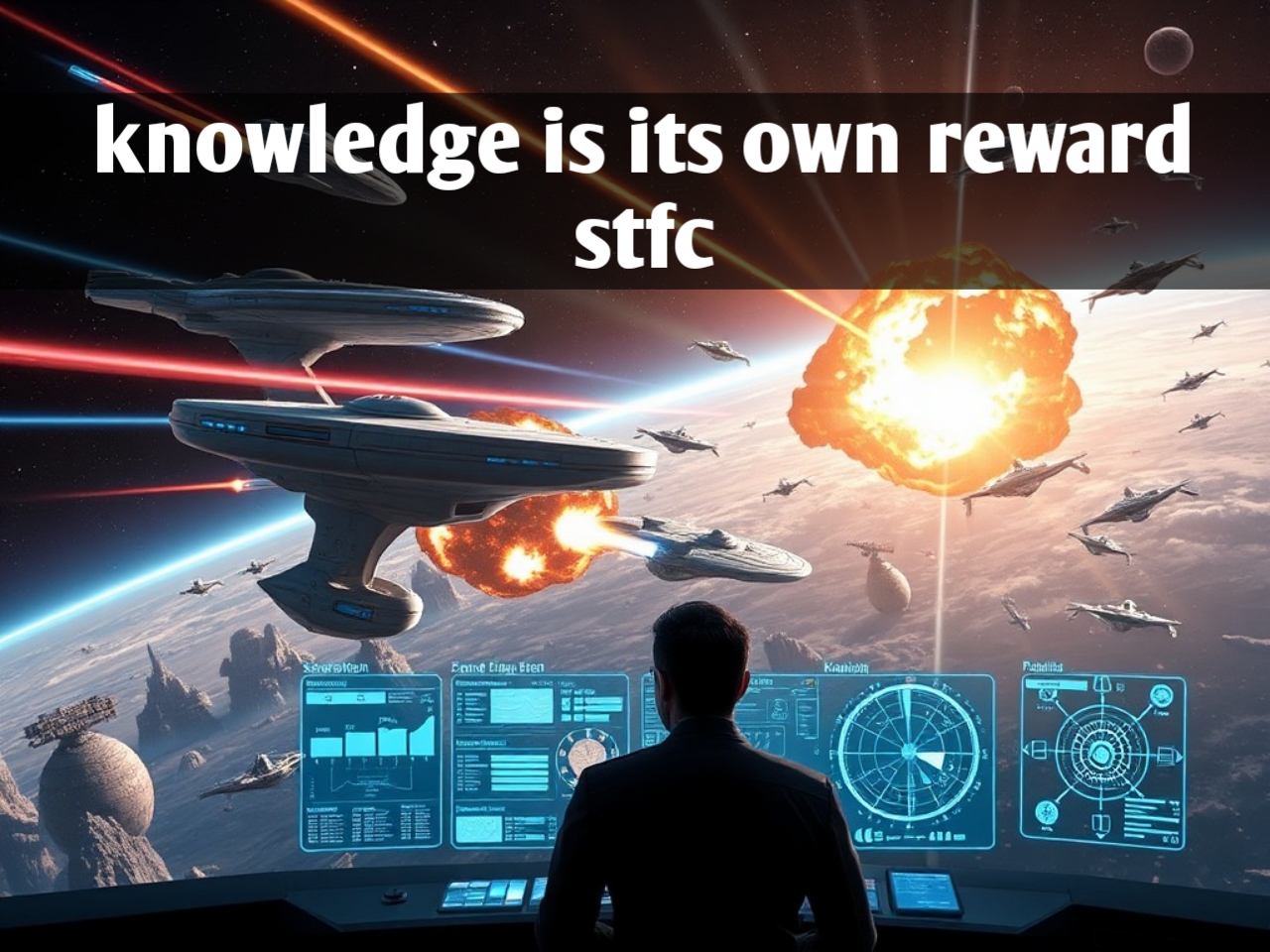Knowledge is its own reward stfc:In a world that often prioritizes tangible rewards like money, status, or recognition, we sometimes overlook the intrinsic value of knowledge itself. But what if we paused for a moment to appreciate the simple joy of learning? The idea that knowledge is its own reward might sound abstract, but when we dive deeper, it becomes clear that learning enriches our lives in ways we may not immediately see. Whether for personal growth or professional development, knowledge has the potential to shape our futures, empower us, and provide a lasting sense of fulfillment.
Why Knowledge Matters
Knowledge is the foundation of both personal and professional growth. Every new piece of information we absorb adds a layer to our understanding of the world around us, sharpening our perspectives and broadening our horizons. When we learn, we gain tools that help us navigate life’s complexities with more confidence and precision.
The Role of Curiosity in the Pursuit of Knowledge
At the heart of every quest for knowledge is curiosity. This natural inclination to ask questions and seek answers drives us to explore and understand. Curiosity keeps our minds sharp, compelling us to look for deeper meanings, new ideas, and better solutions.
How Curiosity Enhances Critical Thinking
Curiosity doesn’t just make learning fun—it sharpens our ability to think critically. When we’re curious, we tend to approach problems with an open mind, asking more questions and considering various solutions. This leads to better decision-making and more effective problem-solving.
Knowledge in Different Domains
We all know that knowledge is valuable, but its importance varies across different fields. From scientific discoveries to emotional intelligence, the power of knowledge spans across all domains of life, influencing everything from innovation to relationships.
Scientific Knowledge: Building the Future
Science has always been a cornerstone of progress. The more we understand our world through scientific inquiry, the more we are able to innovate, solve complex problems, and create technologies that improve the quality of life for people around the globe. Scientific knowledge is not just about discovery—it’s about creating the future.
Emotional Intelligence: The Power of Self-Knowledge
While science teaches us about the external world, emotional intelligence brings the focus inward. Self-knowledge, or understanding our emotions and reactions, is key to building strong relationships, improving communication, and leading a balanced life. Emotional intelligence is often what separates good leaders from great ones.
Cultural Knowledge: Bridging the Gaps
As the world becomes more connected, understanding different cultures becomes essential. Cultural knowledge fosters empathy and helps bridge gaps between people from different backgrounds. By learning about others, we not only enrich our own lives but also contribute to a more peaceful and cohesive world.
The Self-Satisfaction of Learning
There’s a unique satisfaction that comes from learning something new. It’s a feeling of achievement, of growth, that can’t be matched by external rewards. The more we learn, the more we feel in control of our lives, capable of tackling challenges and reaching new heights.
Confidence Through Knowledge
With knowledge comes confidence. When we know more, we feel more assured in our actions and decisions. This confidence can have a ripple effect, boosting our performance in various areas of life—from work to personal relationships.
The Joy of Mastery
There’s a deep sense of joy that comes from mastering a subject or skill. This joy is not just about the end result but the journey of learning itself. Each step along the way, each new insight gained, adds to the satisfaction of becoming an expert in a field.
Knowledge is Power in the Digital Age
In today’s digital era, knowledge is more accessible than ever, but it’s also more critical. With vast amounts of information at our fingertips, the ability to understand, process, and apply that information has become a vital skill. Knowledge in the digital age is not just power—it’s survival.
Lifelong Learning in the Age of Information
The rapid pace of technological change makes lifelong learning more important than ever. In order to stay relevant and adaptable in this fast-evolving world, we must commit to continuous learning. Knowledge is no longer static; it’s a lifelong journey.
Practical Ways to Make Learning a Habit
Learning doesn’t have to be something we do only in formal settings. By making learning a daily habit, we can continuously expand our knowledge base. Whether through reading, listening to podcasts, or engaging in discussions, there are many ways to keep our minds active and curious.
Setting Learning Goals
Setting clear and achievable learning goals is one of the best ways to ensure consistent growth. Whether it’s reading a book a month, taking an online course, or mastering a new skill, having defined objectives helps keep us motivated and on track.
Conclusion
In the end, knowledge is one of the few things in life that offers both immediate and long-term rewards. Whether it’s the joy of learning something new, the confidence that comes from understanding, or the power it gives us to navigate the complexities of life, knowledge is its own reward. So, let’s keep learning, growing, and appreciating the endless possibilities that knowledge offers.

Leave a Reply